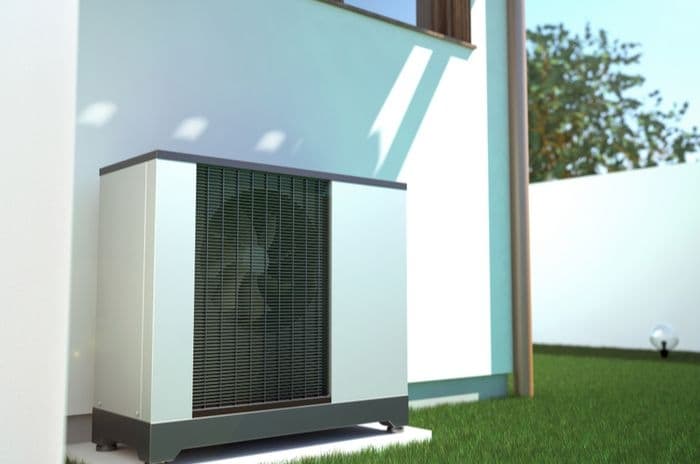Home > Energy > News > Energy companies call for action on decarbonising heat
Energy companies call for action on decarbonising heat
Major energy companies commission report arguing current Government policy penalised heat source pump customers.
While heat source pumps are an important part of the Government's plans for reaching net zero by 2050, data shows they will continue paying more for energy as things stands.
The report by Public First suggests air source heat pump customers will pay £305 more per year on their energy bills in 2030.
Options put forward by the report's authors to remedy this include moving the costs of renewable subsidies away from electricity and on to gas instead.

Heat source pumps
Key to the report's arguments is that Britain is behind our international neighbours when it comes to decarbonising heating through heat pumps.
While the upfront costs of purchasing them are high and there are behavioural barriers to installation, the report's authors focus on the ongoing costs of running a heat source pump in comparison to traditional gas boilers.
The way UK energy policy currently works means customers who do install heat pumps may be penalised with higher bills than those with gas boilers - around £305 per year by 2030.
Policy incentives
One of the main points put forward by the report from Public First is that current renewable policy costs are levied on electricity bills rather than gas bills.
They say this means customers have less incentive to move away from gas because there are greater policy costs added to electricity bills (and heat source pumps require electricity to run).
So, one option put forward by the report's authors is to move all policy costs on to gas bills in a bid to remove the disincentives for households to move away from gas.
While this would make heat pumps £200 cheaper to run than gas boilers, it would increase a customer's average bill by 5% (£70).
Out of four options put forward by the report, the one that would have the most impact on Government spending (increasing it by £5.7bn) is also the one that would reduce average bills by 12% per year and equalise the costs of running heat pumps compared to gas boilers.
One of the energy companies who commissioned the report, OVO Energy, make clear in a blog that this is the fairest option they can see, although as it's the one likely to cost the Government most money, it's unclear whether they will be able to build support for it.
Overarching policies
At the heart of all this is the need to reduce the UK's emissions to net zero by 2050.
Regulator Ofgem set out a plan in early 2020 covering the nine areas in need of improvement if the target is going to be reached.
This included a specific point about support for affordable low carbon heating options, a category which includes heat pumps.
Since then, of course, the coronavirus pandemic has impacted work across the sector, and we reported last week that smart meter installations were beginning to recover after plummeting in 2020.
There was hope in July 2020 that the Green Homes Grant rolled out by the Government to help get the economy back on track would contribute to more low carbon heating being installed in households, but the scheme was subsequently closed earlier than expected this year.
When Good Energy unveiled the first UK domestic energy tariff for heat pump households in late July 2020, they said the Green Homes Grant made it possible for more customers to afford to install heat pumps.
With upfront costs of a typical system between £9,000 and £11,000, it's clear there's an affordability gap for many households.
As the Public First report shows, there are potentially higher energy costs in the long term too, so if the Government is serious about more affordable low carbon heating, they will need to address the concerns within the report.
"Options for Energy Bill Reform" was commissioned by OVO Energy, E.ON, EDF Energy, Scottish Power and Centrica (British Gas).
Get insider tips and the latest offers in our newsletter

We are independent of all of the products and services we compare.

We order our comparison tables by price or feature and never by referral revenue.

We donate at least 5% of our profits to charity, and we have a climate positive workforce.
Latest News

02 January 2024
Energy prices increase by 5%
23 November 2023
Energy price cap to rise 5% in January 2024
24 October 2023
Energy companies must do more to support customersGet insider tips and the latest offers in our newsletter


